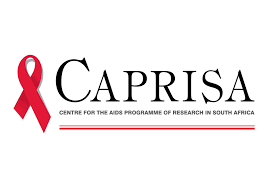KIGALI, Rwanda– Today, at a side meeting during the AU-EU Ministerial Summit in Kigali, Rwanda, Prof Salim Abdool Karim, Director of CAPRISA, announced a collaboration with a leading life science company Evotec for the designing and development of CAP256, a broadly neutralizing antibody against HIV. The project is a major expansion of the development of an antibody originally developed jointly by CAPRISA and the Vaccine Research Center (VRC) of the National Institute of Allergy and Infectious Diseases of the US NIH. This new project is a major boost for the CAP256 antibody as a potential tool in the fight against HIV in Africa and showcases the potential of African researchers to fight the continent’s high-burden diseases. The principal aim of the new joint project is to change the course of the HIV epidemic in Africa, which has 70% of the global HIV burden.
CAP256, isolated from a South African woman by CAPRISA and the VRC, has demonstrated a good safety profile in Phase I studies. The next step is to assess if the antibody can prevent HIV infection in humans as effectively as it does in monkeys. If shown to be effective in preventing HIV, the antibody, in conjunction with the VRC’s VRC07 antibody, has the potential to break the HIV infection cycle. However, the difficulties in manufacturing the antibody have been an obstacle in the research and development of CAP256. These obstacles can be overcome and the production of this antibody can be markedly improved.
Mediated by kENUP Foundation, Evotec SE intends to enter into a long-term collaboration with CAPRISA to further optimize and develop CAP256, using innovative approaches they have developed and used successfully with other antibodies. The collaboration will leverage the capabilities at Just – Evotec Biologics in optimizing manufacturing processes through artificial intelligence and machine learning. The result is a more productive manufacturing process for lower cost and wider access for the product. Evotec’s centers of excellence in Redmond (US) and Toulouse (France) will play a key role for enhancing the antibody’s production, facilitating co-formulation of the CAP256-VRC07 combination and manufacturing CAP256 for clinical trials. CAPRISA is conducting clinical trials of these antibodies in conjunction with the Center for Infectious Diseases Research in Zambia, with the support of the European Union – Developing Countries Clinical Trial Partnership.
In the presence of Hon. Dr Daniel Ngamije, Minister of Health of the Republic of Rwanda, Dr Lindiwe Makubalo, WHO Assistant Regional Director for Africa, and Antoine Anfré, French Ambassador to the Republic of Rwanda, the participants of the AU-EU Ministerial Meeting discussed the project’s potential impact on resilience and independence of African health systems.
Prof Salim Abdool Karim, Director of CAPRISA: “We are excited to work with Evotec and the VRC in this project to improve the CAP256 manufacturing processes. It is the culmination of a decade of research to develop CAP256 in order to assess whether this antibody, which originated in Africa, is effective for preventing HIV in Africa.”
Dr Werner Lanthaler, Chief Executive Officer of Evotec SE: “We look forward to collaborate on re-engineering CAP256. We will use and build global capacities to maximize impact for this important product. This is core of our mission to maximize access to modern biologics also in Africa.”
Hon. Dr Daniel Ngamije, Minister of Health, Republic of Rwanda: “Rwanda is focused on creating a biopharmaceutical ecosystem. With the work of CAPRISA and Evotec on monoclonal antibodies, we have the potential to finally ensure Africa’s access to highly effective therapeutics for many diseases endemic to our continent. This effort has Rwanda’s full support.”


